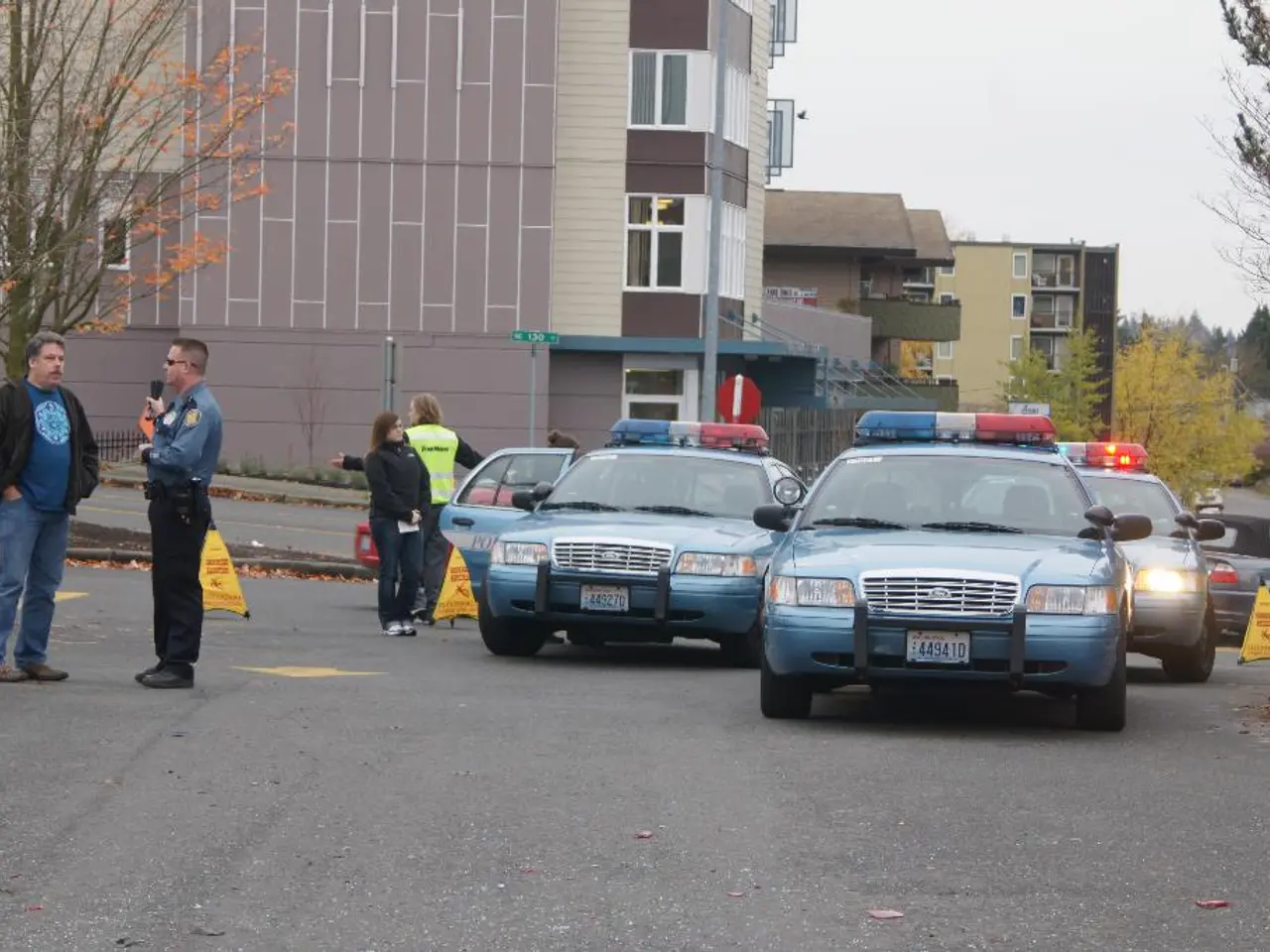Broadcasting Warnings Regarding Potential Financial Risks
In the face of potential funding cuts, public broadcasters like PBS and NPR are bracing for a significant impact on emergency alert systems and public safety, particularly in rural and underserved communities.
The Corporation for Public Broadcasting (CPB) provided $525 million in FY 2023, a crucial lifeline for many smaller, rural public media stations. Nearly half of these stations rely on CPB grants for at least 25% of their revenue[1]. These stations serve as vital links for emergency broadcast message infrastructure, offering a reliable communication network in areas where internet or cellular service may be unreliable or unavailable.
Cuts to CPB funding, such as the proposed rescission of $1.1 billion, threaten the very survival of many of these stations. Public media executives warn that losing this funding would lead to a breakdown of emergency broadcast systems essential for timely warnings during natural disasters. The loss of such a communication lifeline would endanger public safety by limiting access to critical, often lifesaving, alerts and information during emergencies[1][4].
This concern is heightened by recent experiences with natural disasters, where timely and reliable broadcasting of alerts through public media has helped save lives and coordinate emergency responses. Public broadcasters provide free, non-commercial, and widely accessible platforms for emergency alerts under networks like WARN. Funding cuts could undermine these networks' operational capacity, reducing the public's ability to receive essential warnings and response instructions.
Kate Riley, the head of a public TV advocacy group, has warned that cuts to funding for public broadcasters could impact public safety. Riley is tracking the Congressional budgeting process closely to ensure it does not negatively impact public media. She emphasized the importance of communicating with Congressional representatives about the value of public broadcasting and why federal funding is essential[2].
The potential impact of funding cuts on public safety is significant. During natural disasters, public broadcasters play a critical role in disseminating emergency alerts and safety information to the public. Funding cuts could weaken emergency alert systems, disrupt the dissemination of lifesaving information through WARN, and disproportionately affect rural and vulnerable communities during natural disasters, thereby putting public safety at serious risk[1][4].
Moreover, Riley stated that public television stations play a critical role in enabling PBS WARN to deliver emergency alerts to cell phones. She also emphasized that public broadcasters have an obligation to help bridge the political divide[3].
The current administration's fervor towards removing "biases" from media is causing concern for public broadcasters. FCC Chairman Brendan Carr has initiated an investigation into NPR and PBS to determine whether their underwriting announcements violate federal prohibitions against commercial advertising on public broadcasting stations[5].
In this critical juncture, public broadcasters are facing a complex array of challenges. The most immediate concerns revolve around funding, with the potential for significant cuts looming. As the new president of the Association of Public Television Stations (APTS), Riley is leading the charge to ensure the survival and continued success of public broadcasting, a trusted institution for over two decades[6].
References: [1] https://current.org/2021/02/apts-warns-of-potential-impacts-of-budget-cuts-on-public-broadcasting/ [2] https://www.pbs.org/newshour/show/how-public-broadcasting-is-under-attack-and-what-that-means-for-local-stations [3] https://www.npr.org/2021/02/10/967313925/public-broadcasting-is-under-threat-kate-riley-says-congress-needs-to-know-why [4] https://www.npr.org/2021/02/10/967313925/public-broadcasting-is-under-threat-kate-riley-says-congress-needs-to-know-why [5] https://www.npr.org/2021/02/09/967129690/fcc-chairman-initiates-investigation-into-commercial-announcements-on-public-broadcasting [6] https://www.pbs.org/newshour/show/how-public-broadcasting-is-under-attack-and-what-that-means-for-local-stations
- The budgetary cuts, if implemented, could potentially affect the broadcast infrastructure of public media stations like PBS and NPR, threatening the operational capacity of emergency alert systems in underserved communities.
- Infrastructure for emergency broadcasts, which are critical for timely warnings during natural disasters, could see a breakdown due to funding cuts, endangering public safety by limiting access to lifesaving alerts in rural areas.
- The Corporation for Public Broadcasting (CPB) has been a crucial financial support for smaller public media stations, providing $525 million in FY 2023, a considerable portion of which these stations rely on for their revenue.
- To counter the proposed funding cuts and protect the integrity of public media, executives are closely monitoring the budgeting process and urging Congress to recognize the importance and value of public broadcasting.
- The FCC Chairman, Brendan Carr, has initiated an investigation into NPR and PBS regarding underwriting announcements, causing concerns in the public broadcasting sector about potential biases.
- In the face of these challenges, public broadcasters, under the leadership of the Association of Public Television Stations (APTS), are rallying to safeguard their future and preserve their role as a trusted source of information in today's media landscape.




